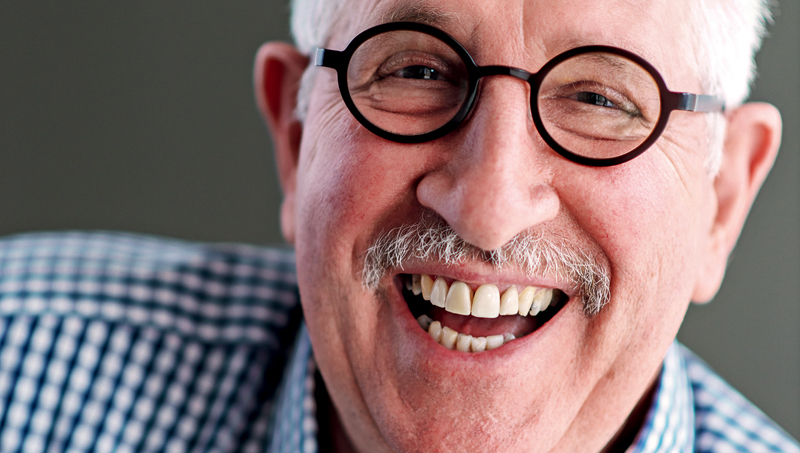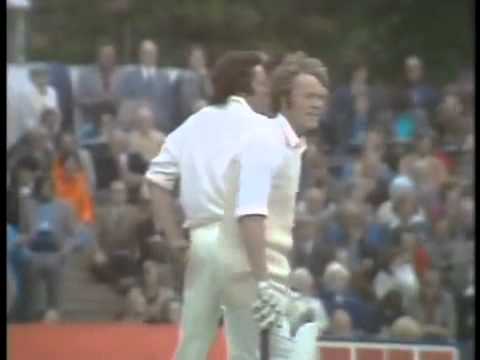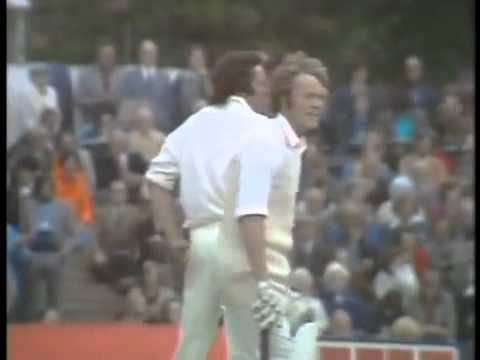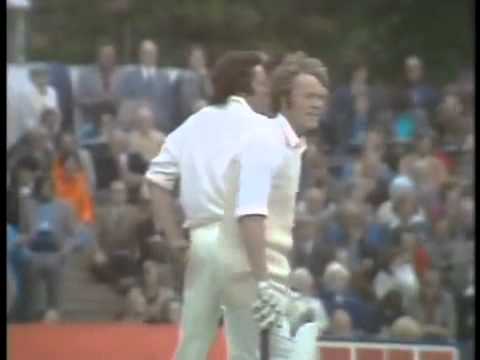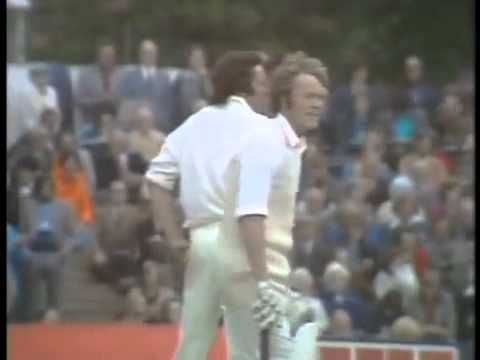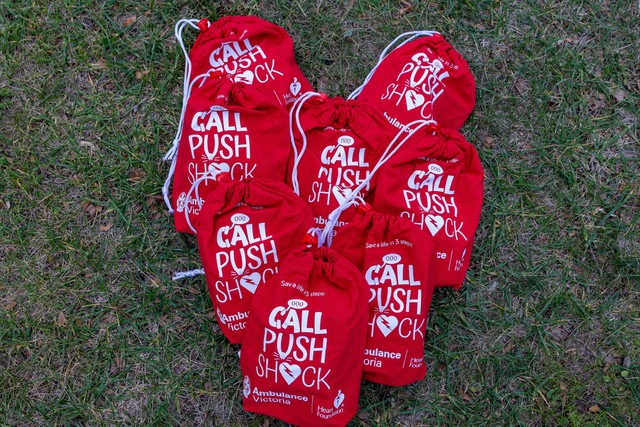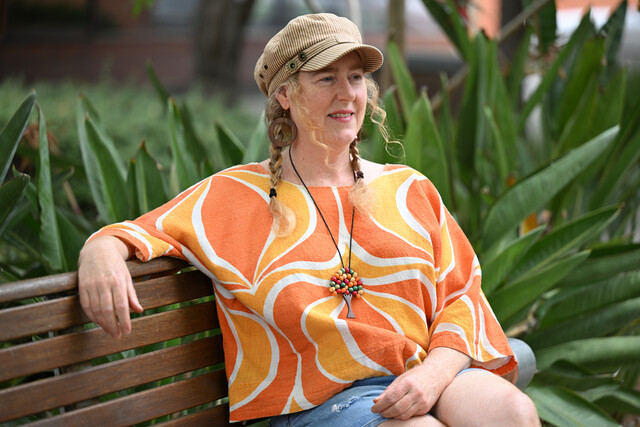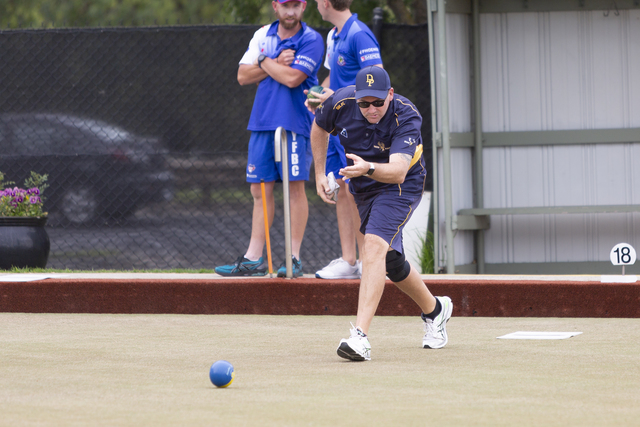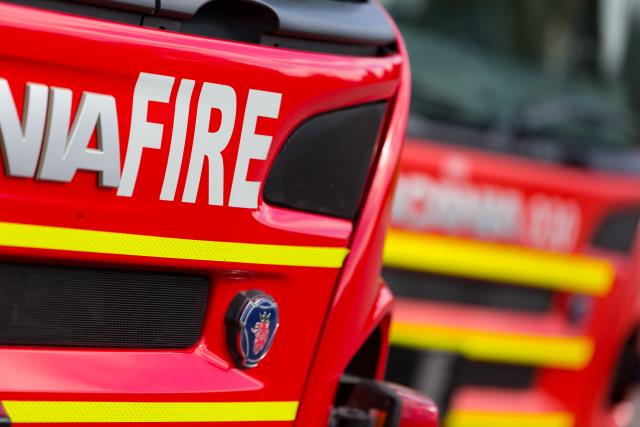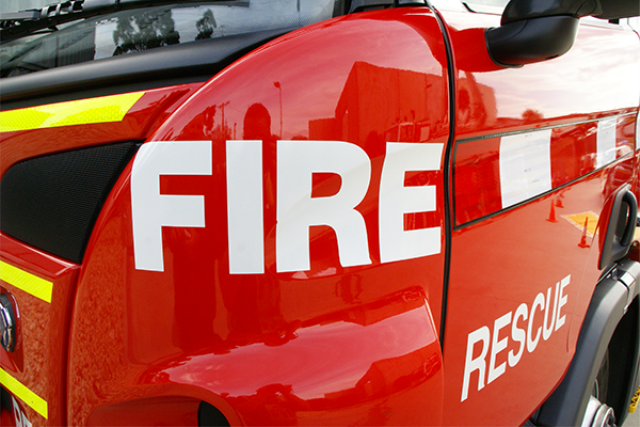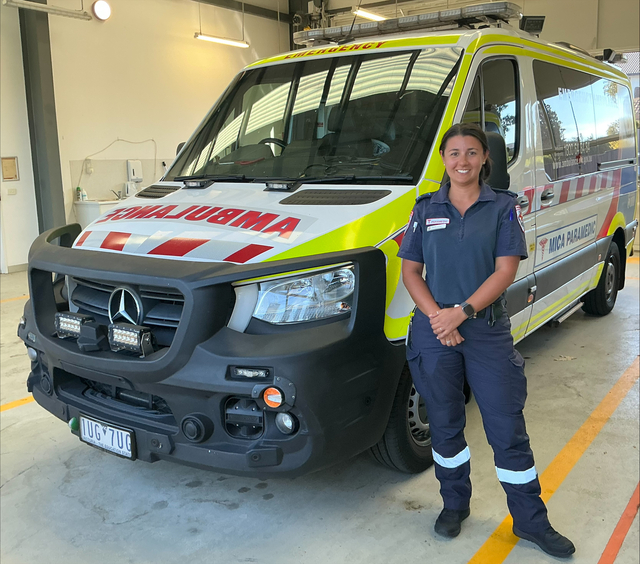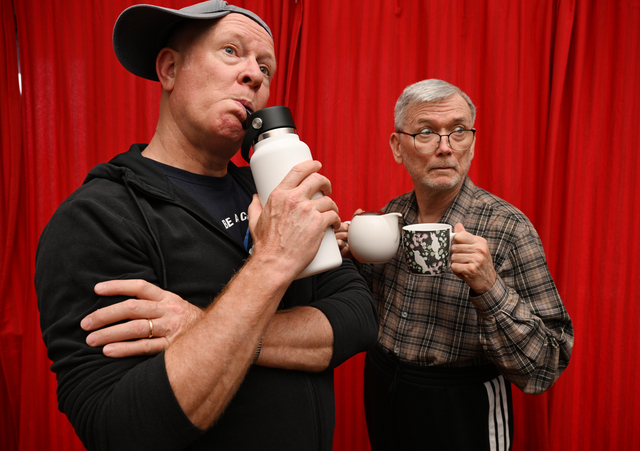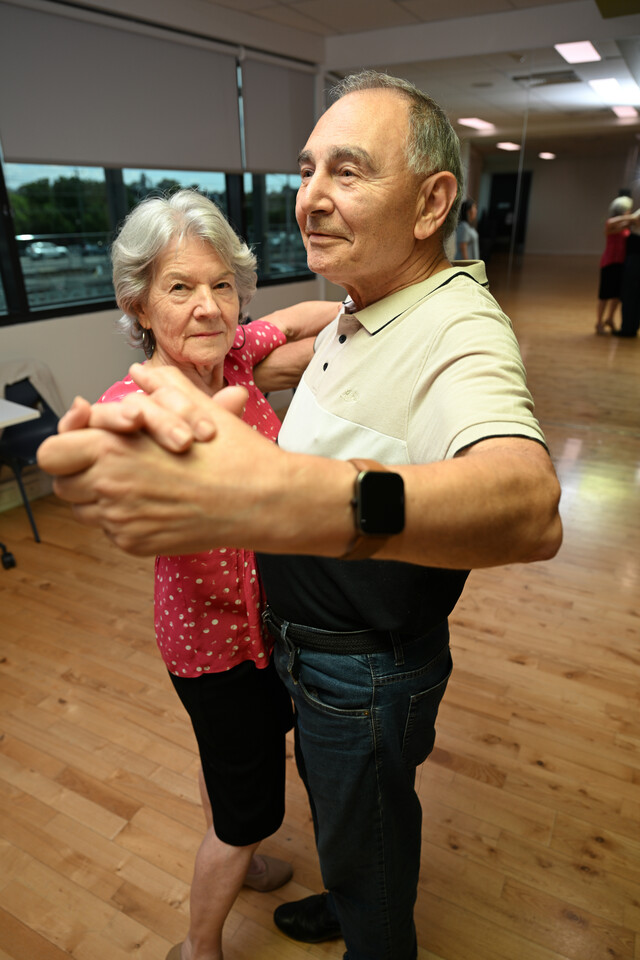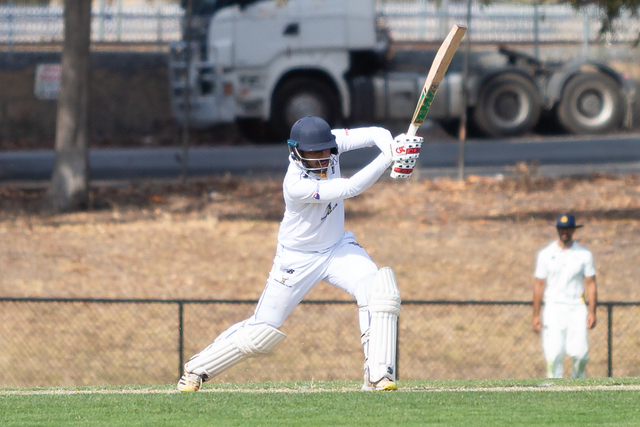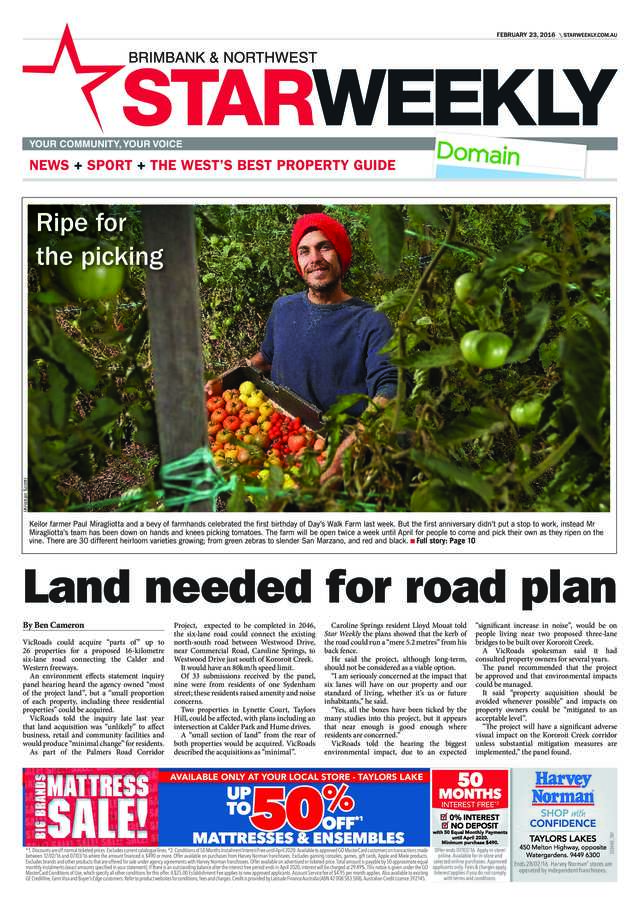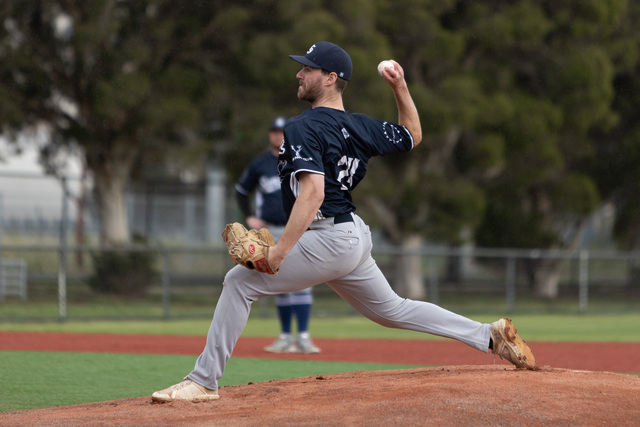See video below
That famous chuckle, the wide smile, the born storyteller. Max Walker is very familiar even when you’ve been in his company for just five minutes, and that’s because he seems to have been in our lives forever, which in a way he has.
Certainly in mine. Declaration: I wore Max Walker’s No.1 on my Melbourne Football Club jumper at age 10. Walker played with the Demons soon after their long period of domination, the early years of what was to be – and still is – a 50-year premiership drought. He was far from a household name in 1970, but I thought he was kind of cool.
Meeting someone with as positive an outlook as Walker, it is almost strange to hear about his darkest moment, the near loss of his son, Keegan, then 27, in a motorcycle accident in 2006.
Walker was in London with his wife, Kerry, when he got the call. “He came off his bike at about 110 [km/h] coming from Brisbane back to the Gold Coast, where he lived, and ragdolled,” Walker says.
Keegan crashed just a metre short of falling 15 metres down onto an underpass road. That was Keegan’s first piece of “luck”. The second was not sustaining brain damage after he lost half the blood in his body.
“He probably should have died,” Walker says. “Another 10 minutes, he would have bled out. They took his spleen out, he had a fractured skull, five broken ribs, four crushed fingers and knuckles, five breaks above the elbow and, on the other side, seven breaks between the hip and the kneecap. He was a serious mess, in a coma for four days, intensive care for another 11.”
It was a “feeling of helplessness” for a father. “You’ve got to trust the power of the universe and people at some stage.
“He had a great fighting spirit, he knew he had to keep his eyes above the horizon, get the crutches to walk again.”
He adds: “It was an incredible story of human spirit and how to come back.”
Now 35 and living on the Gold Coast, Keegan is at “98 per cent”, says Walker. “Physically he hasn’t got the ability for the heavy impact that you and I take for granted. I remember him sending me an SMS saying, ‘Dad, I just completed a first body-press against my own weight’. Well, that’s halfway up Mount Everest if you’d seen where he’d come from.”
Walker and Keegan caught up recently on the Gold Coast, and got together for our photograph. “He’s the richest guy in the world,” says Walker snr. “I keep pointing it out to him.”
Walker reflects on his philosophy about Keegan’s accident.
“Life is not a flat line. It’s not fair. We can all have a pity attack. Like the old cliché in sport, you get up off the floor and react to your circumstances.”

It wasn’t the only deep sadness in his life. In 1987, he lost his sister Lexie, who suffered a fatal heart attack at the age of 38.
“We’re all bullet-proof, aren’t we?” he says. “We don’t expect things to happen to us but they do. Up til then I felt I was bullet-proof but after that I had a lot more empathy and understood the volatility of the universe. The lesson learned for me was to be grateful for all the amazing people around us, and what we’ve been given and created.”
Max Walker, 66, has been on Melbourne’s radar for 40 years, first as a gangly kid from Tasmania playing football for the Demons in the then VFL, then as a Test cricketer and then for years as a host on Channel Nine’s Wide World of Sports.
He was born in Hobart, where his father ran the Empire Hotel. “Dad used to call it the Institute of Experience. There was this never-ending cavalcade of characters. And as a kid in the back yard you’d tap them on the shoulder, ‘Mate, you want to have a bat or a bowl?’ That’s the environment I grew up in.
“In the beginning it was pretty simple. I wanted to be a cricketer or footballer. My dad said, ‘You should be an architect’.”
All three ambitions were realised.
He was 17 in 1966 when legendary Demons coach Norm Smith came to the Walker house in Hobart to sign him up. “Imagine the coach of the century knocking on the door. My contract was nothing like Gary Ablett’s it was on a sheet of foolscap paper.”
Young Max was on his way, but first he had to overcome what he calls a “psychological brick wall” that existed for young Tasmanians “somewhere in the middle of Bass Strait”. It wasn’t helped by the attitudes of some back home who sneered at his dreams. “‘You’re going to be a VFL footballer and you’re going to be a Test cricketer? You’re joking!’. They were people of influence. Even teachers. They have no right to tell you you’re stupid and have no talent.”
But Walker didn’t let the negativity get to him. He played 94 games for the Demons between 1967-72. He broke his nose five times. He also played 34 Test cricket matches for Australia, taking 138 wickets at an average of 27.47 and making 586 runs.
His unorthodox bowling style earned him the nickname “Tangles” after an article in the Melbourne Sun on the eve of his first Sheffield Shield match referred to Melbourne’s “tangle-footed bowler”.
“I bowled right arm over left ear with the legs crossed at the point of delivery.”
Walker’s final match was a one-dayer in 1981 against New Zealand, during which he witnessed up close the notorious “under-arm” incident in which Australian captain Greg Chappell instructed his brother Trevor to bowl the final ball along the ground to prevent New Zealand scoring the six it needed to tie the match.
“They booed us off the MCG,” Walker says. “It was a gut-wrenching feeling. The silence, then the boo. In the commentary box, Ian Chappell couldn’t believe what his two brothers had just done. He could have asked any one of the 12 players on the paddock what he reckoned and we would have said, ‘Greg, no, not underarm’. That was a black stain on the game of cricket.”
“We did invite the New Zealanders in, but they declined the offer obviously. We sat there in silence for 15 minutes then Dougy Walters broke the silence. He looked across at Greg and said ‘Mate, you’ve really stuffed it now’. And then we broke out the beer.”
After retiring from cricket – including a stint with Kerry Packer’s World Series Cricket – Walker practised architecture for 10 years and joined the ABC cricket commentary team. He later joined the Nine Network on Wide World of Sports, a role he held for 16 years before the show was axed. “You can have a pity attack and say, ‘Poor old me, what am I going to do now?’.”
He decided to reinvent himself, writing a series of best-selling books kicking off with How To Hypnotise Chooks (four of his books sold more than 100,000 copies). He also joined the speaking circuit, sharing his memories of sport and the media. He is still a regular speaker.

For five years he has been involved with a production house called the bhive Group, which provides “digital engagement” such as QR code gateways and mobile messaging. One of his partners is former TV weather presenter Rob Gell.
After an injury, Walker was told by a doctor to stop running and realised he was putting on weight. After a trip to Egypt with Kerry, he stopped drinking.
“I was going to be bigger than Merv [Hughes] when we got back, seriously,” he says. “I thought, ‘Geez, you’ve got to take responsibility a bit for what’s happening’. So I had a good hard look at myself in the mirror and thought, ‘How can I change this?’. Not very good at diets, so I thought, ‘I could take alcohol out and probably ramp up a bit more exercise’. So I did.
“I thought it would be reasonably difficult to give up drinking … but I just stopped. It’s an occupational hazard in the speaking business because you’re out at night and you get topped up and you wouldn’t know how many you’d had.” He lost 10 kilograms.
Walker has five children, three boys from his first marriage – Tristan, 37, Keegan, 35, and Shelden, 33 – and two daughters from his second: Alexandra, 23, and Isabella, 17.
What do the children think of dad? “I think it was tough early on,” he says.
“No one likes the idea of divorce or separation.” And having a famous dad brought some added pressures. “Can you imagine what it might have been like? Rough enough that your dad might have been a good sportsman.”
He talks of the pressures children of achieving parents can face. “Dad played football and cricket for Tasmania. Guys would come into the pub and say, ‘Son, if you were half as good as your old man you’d be a champion’. As a young kid that used to really irritate me.”
He still loves public speaking, the chance to share stories with different crowds. “I love reinvention, ideas. To get to speak to all sorts of groups.”
Walker is a truly cheerful person, positive, enthusiastic, always glass half-full. He says his mantra is “imagination + association = possibility”. He goes for long walks and stops at a favourite café in Malvern to write notes and draw in his notebook. He calls this moment in his day “the fourth dimension”, the chance to reflect and download.
It’s no wonder Walker succeeded in the media and speaking circuit: he’s got such natural warmth. He’s a man of many parts with a huge respect for the past but an even larger appetite for the future.


